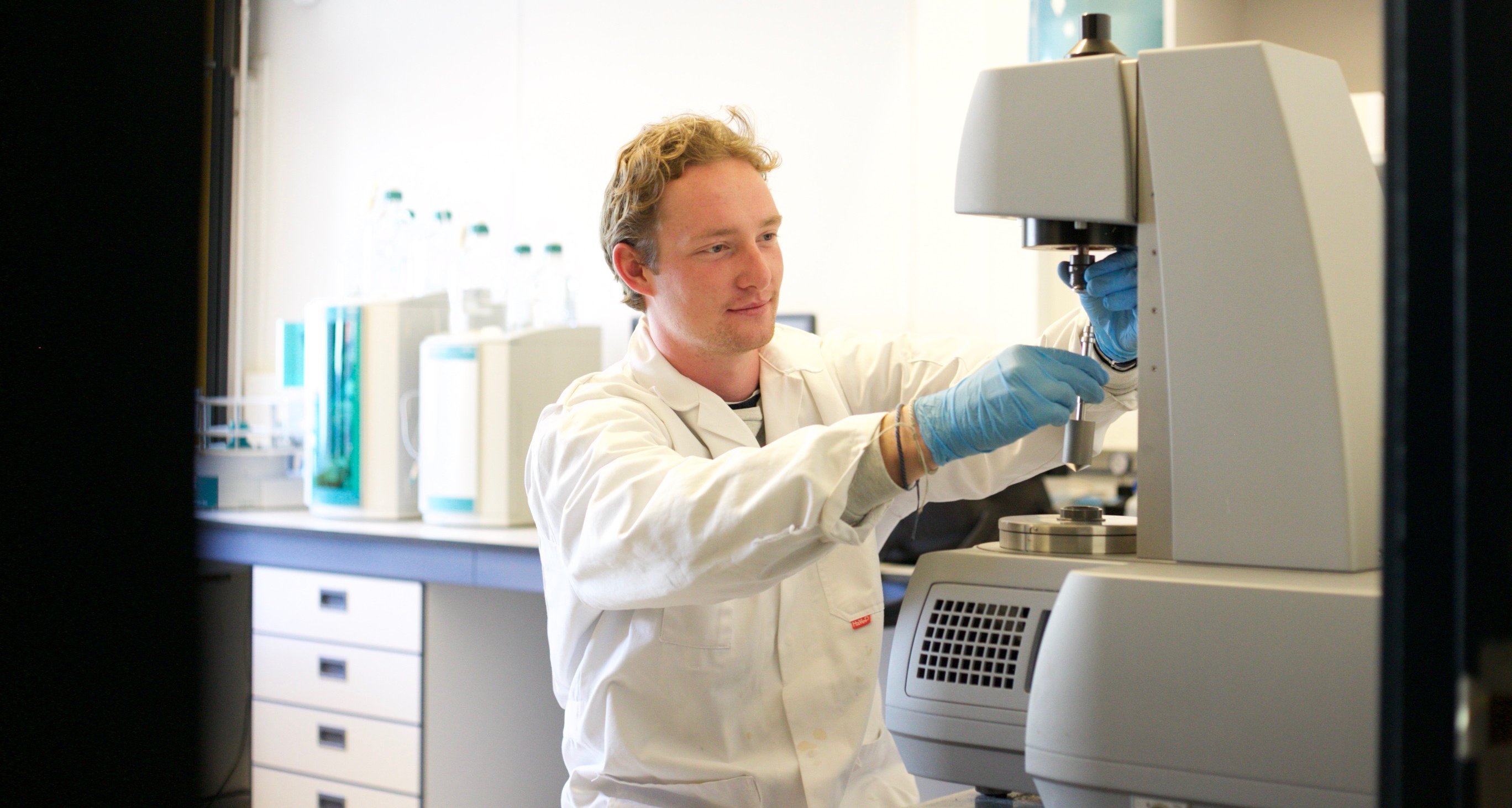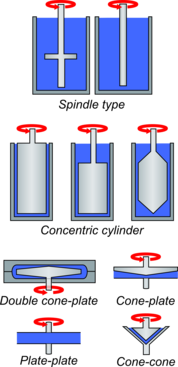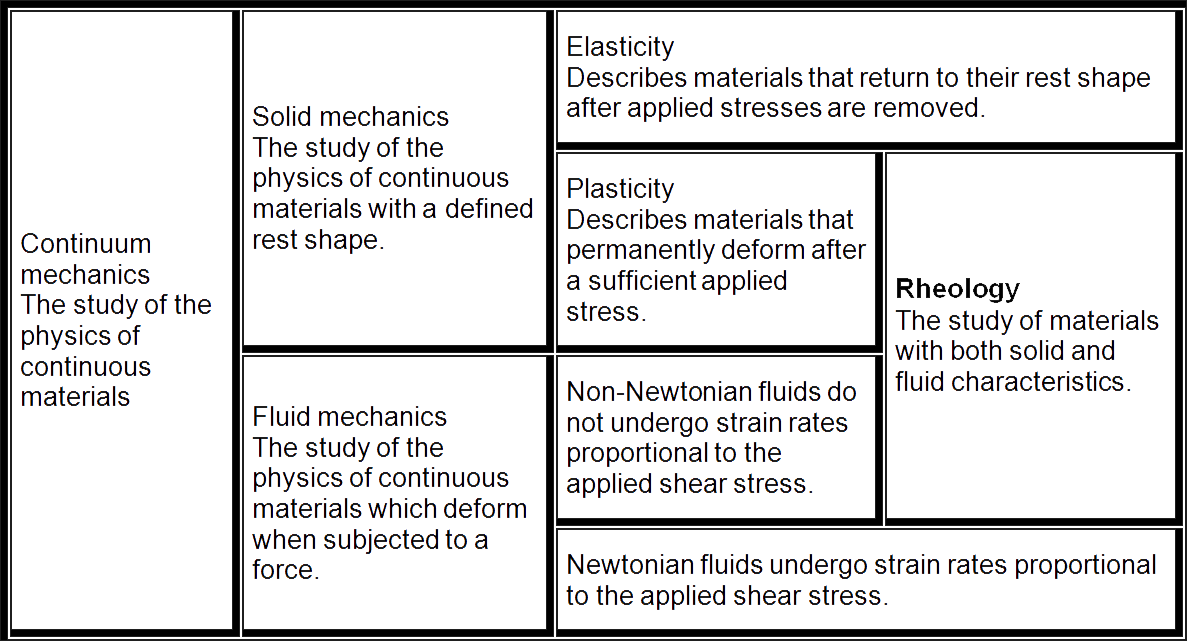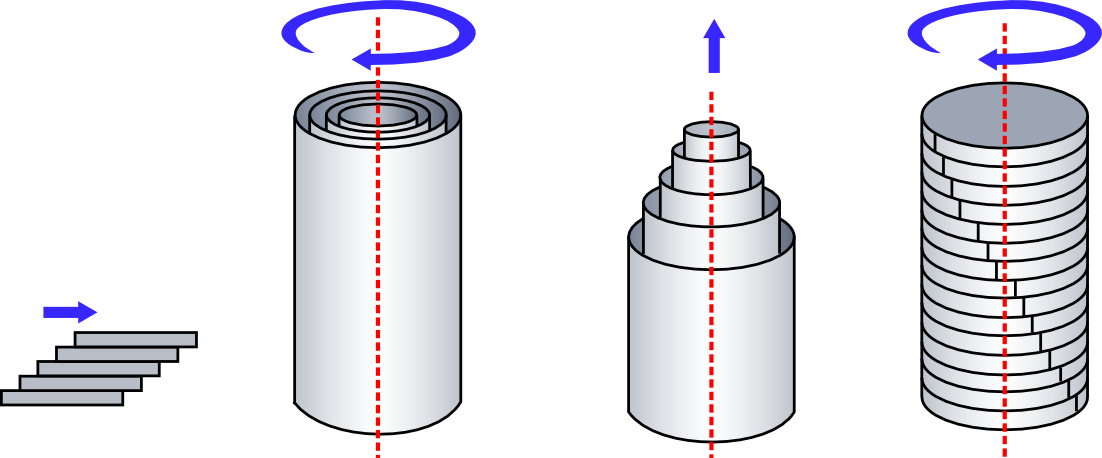Rheometer
Rheology is the study of the flow of matter, primarily in a liquid state, but also as "soft solids" or solids under conditions in which they respond with plastic flow rather than deforming elastically in response to an applied force. It is a branch of physics which deals with the deformation and flow of materials, both solids and liquids.

In practice, rheology is principally concerned with extending continuum mechanics to characterize flow of materials, that exhibits a combination of elastic, viscous and plastic behavior by properly combining elasticity and (Newtonian) fluid mechanics. It is also concerned with establishing predictions for mechanical behavior (on the continuum mechanical scale) based on the micro- or nanostructure of the material, e.g. the molecular size and architecture of polymers in solution or the particle size distribution in a solid suspension. Materials with the characteristics of a fluid will flow when subjected to a stress which is defined as the force per area. There are different sorts of stress (e.g. shear, torsional, etc.) and materials can respond differently under different stresses. Much of theoretical rheology is concerned with associating external forces and torques with internal stresses and internal strain gradients and flow velocities. It applies to substances that have a complex microstructure, such as muds, sludge, suspensions, polymers and other glass formers (e.g., silicates), as well as many foods and additives, bodily fluids (e.g., blood) and other biological materials or other materials that belong to the class of soft matter such as food. The choice of the adequate experimental technique depends on the rheological property which has to be determined.


A simulation of viscosity. The fluid on the left has a
lower viscosity than the one on the right (picture)
For all real materials, the measured property will be a function of the flow conditions during which it is being measured (shear rate, frequency, etc.) even if for some materials this dependence is vanishingly low under given conditions (see Newtonian fluids).

A Rheometer is a laboratory device used to measure the way in which a liquid, suspension or slurry flows in response to applied forces. It is used for those fluids which cannot be defined by a single value of viscosity and therefore require more parameters to be set and measured than is the case for a viscometer. It measures the rheology of the fluid.

The new MCR 302 rheometer from Anton Paar is based on a concept at the cutting edge of technology. The EC motor technique, the low friction bearing and the normal force sensor have been optimized to satisfy the highest demands of rheologists. Any type or combination of rheological tests, both in rotational, oscillatory or temperature controlled mode, are possible with this rheometer. The innovative and patented features Toolmaster™, TruGap™ as well as T-Ready™ are breakthroughs in terms of user-friendliness. TruRate™ and TruStrain™ ensure absolute control at any time during rheological tests.